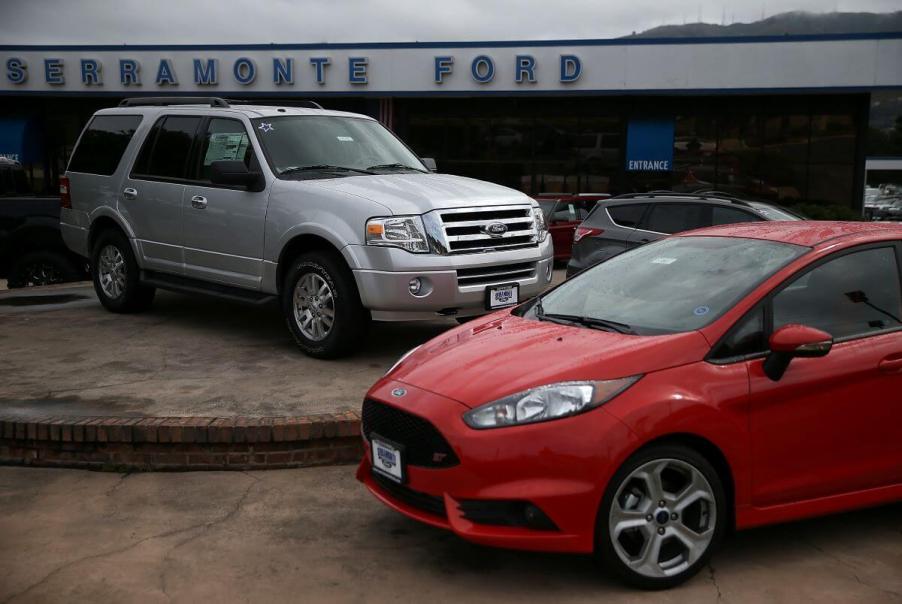
Are SUVs More Expensive to Insure Than Sedans?
Once you put down your life savings to purchase a car, you have to fork over more money to put insurance on it. If you’re looking to buy a vehicle but want to choose one that won’t cost too much to put coverage on, you’re probably trying to decide between an SUV or a sedan. Is the sedan cheaper to insure than the SUV?
Let’s look at what factors go into deciding how much you pay and whether the SUV is more expensive to take a policy out on. Also, let’s explore tips for choosing a vehicle that won’t cost you an arm and a leg to insure.
What influences auto insurance costs?
Insurance premium costs are affected by several different factors. Your driving record is one of them. Insurance companies will check if you have any traffic tickets or accidents on your file to see how much of a risk you would be on the road. This tells them how likely it is you will be involved in a claim in the future. The higher the risk you pose, the higher your premium costs will be.
Age is a major deciding factor when insuring a vehicle. Younger drivers are seen as a risk on the road due to their likelihood of making poor judgments when driving, like going over the speed limit often. They will, more often than not, pay the most for auto insurance. Someone who’s 40 years old has more driving experience under their belt and is less likely to get tickets or have an accident, so they will pay less.
Another major factor in figuring out insurance premiums is your credit score. While not all companies use this to calculate insurance costs, many do. A poor credit rating indicates to the insurance agency that you will likely file a claim in the future, so you would be considered a risk, which drives up the price of your insurance. Other factors include gender and the location of where you’ll drive the car. The one we’re discussing here, though, concerns the type of vehicle you drive.
Are SUVs more expensive to insure than your typical sedan?

Insurance companies will look at the vehicle you want to insure and look for things like:
- How much it will cost to repair
- The vehicle’s safety ratings
- How many claims the vehicle type brings annually
The safer the car is, the lower your insurance premium will likely be. When buying the cheapest vehicle to insure, your best bet is a minivan. They typically have more safety features, and it’s less likely to get involved in any risky driving maneuvers, like speeding. According to Car and Driver, a minivan costs approximately $1,842 in insurance costs.
The next cheapest vehicle to purchase would be an SUV because they’re used much like a minivan. These family-type vehicles have many safety features and are less likely to pose a risk when driving. However, a midsize or full-size SUV is more expensive to insure when you compare it to a crossover, which is smaller in size.
A crossover vehicle costs an average of $1,905, and a bigger SUV would cost $2,043. Conversely, a sedan costs $2,212 to insure, which is a few hundred dollars more than an SUV. According to WalletHub, Some cars, like the Toyota Camry, can cost you more in premiums but won’t be as expensive to replace if in an accident.
How to choose the cheapest vehicle to insure
With the rise in new car prices and insurance costs, many drivers are looking for ways to keep the charges down as much as possible. If you’re looking to buy, how do you choose one that won’t cost you a ton of money when you insure it?
One tip is to stick with family-type vehicles, which will have the most safety equipment installed. Sports cars are riskier and aren’t going to have the same type of safety features you would get with an SUV. Additionally, ultra-luxury vehicles come with top-notch value. Insuring it will cost you a pretty penny because these SUVs and cars will cost the insurance agency top dollar to replace, so your premiums will increase to offset that.
Search for a vehicle that’s slightly used. Going with a brand-new car will cost you more to insure simply because of its value. A slightly used vehicle will have a depreciation, costing you a bit less to put coverage on.
Hybrid vehicles are great for fuel economy but not so much for insurance. These cars have expensive equipment, like the electric motor and battery, that will cost you more to replace if you file a claim. Lastly, avoid cars that are popular with vehicle thieves. WalletHub lists the top five stolen cars, which include Ford and Chevy pickups, the Toyota Camry, the Honda Civic, and the Honda Accord.
When you buy a car, your investment will be more than just the price of the vehicle and any interest your loan adds. It will also add the cost of your insurance premium as well. How much you pay will go by your driving record, age, gender, and the type of vehicle you buy. The cheapest cars to insure are generally minivans and SUVs, which are more affordable than insuring a sedan. Ultimately, you can avoid paying too much for your insurance coverage if you follow some of the tips we laid out here.



